Hello my friends,
You’ve been through a lot this with us this October - our month of horrors has explored the haunted halls of Mansfield Park, the monstrous mousiness of Fanny Price Ultimate Conqueror, the Drawing-Room treachery of Jane Austen’s parlors, and now we cap it off just in time for Halloween weekend, with this special post and podcast episode featuring professor and writer Maria DeBlassie.
For Dr. DeBlassie, ordinary life is full of dangers, threats from the real and every day, and what she calls ordinary gothic. Everyday treachery is everywhere and it haunts Jane Austen's novels, where our heroes are forced to face down drawing room dangers even among so-called polite society. But Dr. DeBlassie also has an answer to this problem. She says everyday magic, and the empowerment and joy and romance found in nature, in the power of stories, and in yourself, can help you slay the everyday demons.
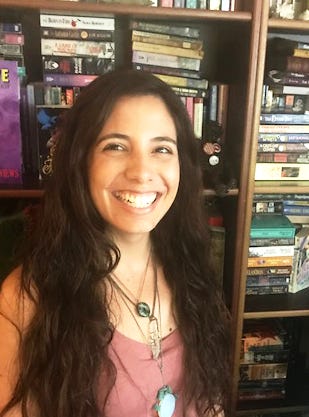
So, for this special Halloween edition of the Austen Connection we're having a conversation about gothic romance, Northanger Abbey, Mansfield Park, feminism, bodice rippers, witchery, and everyday magic.
And somehow Professor Maria DeBlassie ties all of this together in her work and in her life. Dr. DeBlassie is on the faculty at Central New Mexico Community College and teaches in the Honors College at the University of New Mexico.
In her teaching, her writing, and in her brujeria practice, Dr. DeBlassie is all about finding joy and empowerment, especially as women, as a women of color, and from indigenous or marginalized backgrounds. She says magic, witchery and reading Jane Austen can help you form a magical path forward from trauma and fragmentation based on marginalized identities and to conquer that ordinary gothic that we all face at times.
And when you think about it, Jane Austen's characters are all about conquering the ordinary gothic - Fanny Price, Elinor Dashwood, Catherine Morland - they are constantly conquering the everyday treachery of people around them. Think of patriarchal Sir Thomas, Sir Walter, Henry Crawford, the Thorpe siblings, John and Isabella.
These characters and the dangers they bring can relate not just to the everyday but also the political, the cultural society, and the world we all share.
But Dr. DeBlassie also teaches the romance genre, and she believes that Jane Austen has an awful lot to say about our everyday relationships.
Here’s our conversation about ordinary gothic - the disturbances, toxicity, danger, and general creepiness surrounding us - and finding a path forward through story, and everyday magic.
Enjoy!
Plain Jane
So let me start with: I saw you on Twitter talking about your work, as a professor, about Northanger Abbey, bodice rippers. What is the title of the class? And what's in it? What are you teaching in it?
Dr. Maria DeBlassie
So the title of the class is “From Bodice Rippers to Resistance Romance,” or something like that. And it's looking at courtship novels, bodice rippers, and historical romances, and really thinking about how the courtship novel in the 18th century, 19th centuries, really developed this beautiful form of storytelling that centered women's lives, that centered the domestic sphere, and people's emotions.
So we look at that and how that genre really inspired the modern romance novel, particularly the historical romance. And then there's a real, spicy couple of decades, where we get the bodice ripper in the sort of ‘60s, ‘70s and ‘80s. And that's when people introduce sex. And you know, it's really colorfully described sex scenes into the historical romance. So the bodice ripper is really what most people think of when they think of romance novels. They think of the sexy clinch covers, and Fabio, and now and then we end up the class looking at contemporary historical romances that are really thinking about centering people with marginalized identities, in stories about happy endings. And I think it's incredibly powerful to have those stories, so people of color, people from the LGBTQ-plus communities, people with disabilities, they get to see themselves having happy endings, and seeing it in stories that are set in the past. Because I don't think people realize that the past is a very complex space. It tends to be whitewashed and heteronormative and ableist. Like the way we talk about that history.
So when we look at historical romances that center people of color, for example, it's really reclaiming that space and undoing a lot of that historical erasure.
So that's kind of what we look at in the class and it's a lot of fun. You look at sex positivity and gender, politics, and all sorts of really fun things with it.
Plain Jane
What comes out in these discussions that delights you? Or surprises you? I'm a teacher too. So I know you learn from your students. What do you learn from them? And what do they what do they surprise to hear from you in these conversations?
Dr. Maria DeBlassie
For me, it's always funny because I'm so steeped in this world of reading romances already. So sometimes I forget what it's like to be someone approaching the genre for the first time. So it's always fun to see students engaging with it and being pleasantly surprised that they can analyze and think critically about a really joyful genre that they can have fun, when they're analyzing and unpacking things.
And then, genre that's really considered pretty much fluff has a lot of really interesting, complex, intense, problematic ways of framing things historically. You know, we have issues of imperialism, colonization, race - all these things are playing out in these stories. And it's really fun to show them how that's working.
I think it's incredibly powerful to have those stories, so people of color, people from the LGBTQ-plus communities, people with disabilities, they get to see themselves having happy endings, and seeing it in stories that are set in the past. Because I don't think people realize that the past is a very complex space.
So even a frothy fun book is actually pretty loaded and charged and doing a lot of different things. Sometimes it's really positive stuff. Sometimes it's not so positive.
And I had to laugh, because when we did, we read The Pirate and the Pagan by Virginia Henley for the bodice ripper. And it was the first texts we read that have sexually explicit content. And there's a moment where students were like, the stories that center our emotional lives or sexual lives or romantic lives - they're so charged, they're so over the top. And yet, they're really saying such beautiful, important things that affect us in our day-to-day lives. And it's it's beautiful to see students engaging with that, responding to things that really gave them wonderful ideas about their own lives, their own relational lives.
And also how they will catch things that I don't catch.
So one of my students thought there was a character in The Pirate and the Pagan who was queer coded. And I was like, “That's amazing. That's so brilliant.”
So they bring their own interpretations to things, which is so powerful. I think that that's great. But do we ... start the class with Northanger Abbey. We watch the 2007 BBC film adaptation of it, because I think it just does an absolutely wonderful job of looking at why readers - particularly young women - are reading these kind of lurid over-the-top, you know, scandalous stories.
Plain Jane
Well, let's unpack that a little bit. Northanger Abbey. I guess that's probably the Andrew Davies adaptation, which really, I think starts with or has kind of embedded in it all these fantasies. Catherine Morland's fantasies depicted, which is a great thing to do for the screen, I think. And it makes it in some ways more Gothic than the novel feels.
What do you unpack and what do you talk about with Northanger Abbey?
Dr. Maria DeBlassie
So I love that film adaptation because I think it takes the novel and really pops out the conversation that's being had in it. Northanger Abbey isn't as popular [in] the Austen canon. But I think it's because a lot of people don't know about Ann Radcliffe and all those sorts of stories that young Catherine Morland is reading. If we situate it within its historical context, people are reading it, and they know just what kind of juicy content Catherine Morland is reading.
So, I really love the film adaptation because of those fantasies, we really get to embody and experience all this excitement that's going through Catherine's mind. And I teach it to my students in terms of a young woman's sexual awakening and the real power of the ravishment fantasy. And so that's where it can become a little bit tricky territory because, you know, we're talking about the Me Too movement, we're talking about, consent is mandatory in all things. Their old-school bodice rippers have really problematic rape scenarios or sometimes it's euphemistically called “forced seduction.” So we're really thinking about, Why are all these things playing out? ... I think it's really about seeing these books as a safe space to explore your sexuality and really understand the difference between a ravishment fantasy versus what you want to see happen in real life.
One of Catherine's first fantasies in the movie is being abducted by highway men. And it's such a funny scene because it ends with her, like, in the highway man's grip, and she has this terrified [look], but it slowly shifts to pleasure and excitement. Of course, you know, that's the moment where you realize she's just completely lost in this fantasy of what is this whole wide world. What is this sexual world she's being exposed to in these books? What is this new adventure she's going on, because she's never really been outside her hometown. And it's just the pure joy of that.
Now, by the end of the story, when she is in a situation, she's kicked out of Northanger Abbey, by General Tilney, and she does run the risk of running into some very real highwayman. In a way … she has to go home and she's unsupervised. She's unprotected.
Plain Jane
That's an interesting point.
Dr. Maria DeBlassie
Yeah. She realizes, these are two different things - the fantasy of being desired and having desires. It's very different from the real-world dangers that I have to negotiate.
Plain Jane
It's interesting, I love that you point out the word fantasy, I find myself saying this in the posts. And it's just kind of funny, but it does need to be said. And I think in some ways, the reason it still needs to be set is because we're largely talking about female desire. It's like, we have all watched plenty of Tarantino films, we know that sex and violence goes together in our culture, and that there's an erotic aspect to violence. It's when there's that erotic aspect to our violent aspect of female desire that people get confused. But especially because there are these important questions about feminism and, who is attractive? You mentioned this, who we find attractive is a social construct in so many ways. And … the other thing going on with romance, of course, Maria is that it is a huge industry, it is a big bestseller. That is reason enough to treat this seriously. As a genre … it's so foundational that I have really been wanting to explore this. And I feel like that's one of the fun things about Northanger Abbey. And one of the fun things about Jane Austen, is that it is still so foundational to what we find romantic and to these stories that we tell.
Dr. Maria DeBlassie
And you know, everyone, I think kind of dismisses Catherine as this young girl who gets swept away with her imagination. And, you know, the huge butt of the joke in the story or the huge, you know, ongoing joke is that she's overreacting to things in her daily life or blowing things out of context.
But as I was rereading the book and watching the movie for my class, I realized: actually, she has really great instincts, and all the stuff that she feels uncomfortable about are actually things she should feel uncomfortable about.
Like when … John Thorpe. He takes her [for[ the ride. She's like, I feel really uncomfortable with this. But everyone kind of gaslights her and makes her feel like she's overreacting. It was like, no, she should feel uncomfortable with that.
Plain Jane
I love that scene. I love it that you highlight that scene. I feel like it's easy to just “drive by” that scene. … She's literally being forced to stay with him, he will not stop the carriage. Who's been in a car that you weren't sure was going to stop? Or a door that you weren't sure you're going to be able to open? Austen is really giving you that scene and she's making it funny, but she's also showing you something very important, as she always is: That this doesn't feel good. And she's making you feel it. She's making you feel that frustration, and she's making you feel the danger of that moment.
Dr. Maria DeBlassie
Yes, absolutely. And the way, you know, other women can be complicit in that, right?
His sister's helping to orchestrate that situation. And, you know, each and every time Catherine kind of brings up a question like, “I'm uncomfortable about how we're doing this,” Isabella and John, you know, kind of talk her out of her feelings or undercut her emotions. Which, you know, I call that like a really good example of ordinary gothic. It's something that happens all the time. That is actually really bad and problematic, right? That's how women second guess themselves about their instincts.
But people don't perceive it as something gothic or scary because it's just so normalized. And then on the other hand, we have Henry Tilney, which she just kind of knows he's a really good guy. She just has this feeling about him, which ends up proving really true.
So it's interesting. So as flighty, and as flaky as she might seem, she actually has a pretty good head on her shoulders. And the books are helping her better process and navigate her new world that she's exploring.
Plain Jane
Yes, and at risk of sounding extremely repetitive for people who listen to all of the Austen Connection, I really feel like that's one of my favorite themes of Austen: She's showing you what you expect first, you realize even by the end that, “Oh, she really does have something going on.” Even over Henry, at the end of the day, she's right. She encounters true danger. Like you say, I love that, at the end is the patriarchy, is General Tilney - Can't get any more patriarchal, right?
Dr. Maria DeBlassie
He's like the classic gothic villain, you know. The evil patriarch archetype. And it's there in both the book and the movie, when Henry Tilney at the end, really [scolds] Catherine and lays into her about her fantasies and how she's assuming that there's all these evil goings-on in his family. And it's really not, you know, that's not the case at all. And it's true that she does kind of a violating thing by trying to sneak into - I think she's sneaking into his mother's chamber to find evidence. So, you know, some sort of disaster.
Austen is so great at having those really horrifically, like secondhand embarrassment scenes where you're like, “Yeah, you know,” it's like, Mr. Knightley says, “You did a bad thing.” And I felt uncomfortable just reading and watching this. But you know, I love at the end of Northanger Abbey that Catherine really feels rightfully apologetic and chastised by Henry Tilney, when he's like, “You have no right to intrude on my family's stories like this.” But then he later comes back. And he's like, “Actually, what you were feeling and thinking was, right. I mean, you took it out in a weird way. But my mom was really unhappy in the marriage.”
And so I love that he's able to apologize and say, “Well, I didn't like the way you executed things. But you actually picked up pretty quickly everything that's going on with my family dynamic.”
And to me, that's such a powerful moment, because you know what a gothic romance is about what are romance novels about? It's about traditionally young women entering the marriage market and having to negotiate all these new things: the rake, the evil gothic villain, the wonderful hero, and trying to figure out what kind of marriage alliance, what kind of marriage or love match am I going to make?
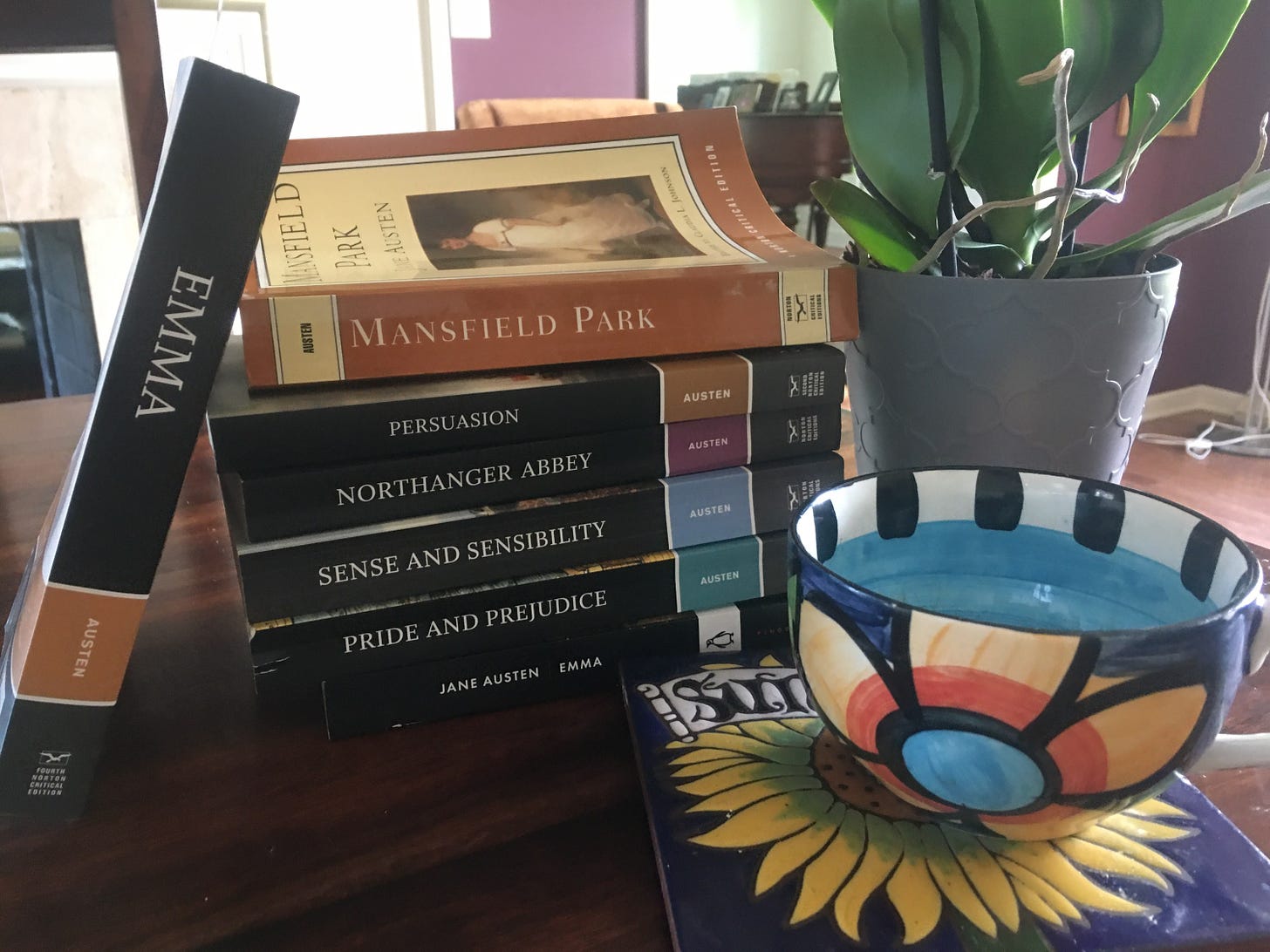
Because in Austen's time, if you choose the wrong marriage, like, you're screwed. You're kind of locked into that. So women were seen as property of male family members. So once they chose a marriage, and usually they didn't have a whole lot of agency in that they're pretty much locked in. So General Tilney’s wife had more of a tragic marriage story. Because she thought it was love. You actually married her for her money, and now she's stuck.
So what Catherine Morland is really looking at in reading all these gothic novels is, How do I avoid the worst possible situation and find the best possible situation? You know, happiness, love, stability, and a partner who sees me as an equal.
So, again, she seems real, like a horny teenager, you know, just really getting into like, “Wow, all these men like me,” but there's another real part of her thinking, “What's my future gonna be like, and how do I negotiate all these things and not get carried away and make the wrong choice?”
Plain Jane
There's so much at stake with marriage. And listening to you, I realized that it must be really lovely to be exploring these stories with you in the classroom and to have you as a teacher.
Claudia Johnson wrote something and Dr. George Justice and I were talking about this in a … podcast, that Claudia Johnson writes about “the fantasy of benign authority,” which she's describing Knightley, and you're making me realize Henry Tilney does come back and say, “Well, you were wrong, but essentially you were right.” I wonder if that's part of the fantasy? Knightley does the same thing, you know: Emma's matchmaking for everyone, and he says, [in] a really romantic moment, and we're all swooning, basically … he says, “You would have chosen for Mr. Elton better than he chose for himself.” Such a smart thing to say, like, “Yeah, you're walking around wrong, but you're not as wrong as everyone else.”
Which I think is kind of what Austen's showing us with her heroines a lot as well. She's having fun with these mistakes they make. But there're still more right than everyone else .. And so I feel like she she's kind of doing something feminist in that. … Dr. George Justice, and I were reminding ourselves … it's Austen, creating these powerful characters. She's creating this powerful patriarchal symbol, with Pemberley and Darcy, and Knightley and Donwell Abbey. She gives us the most powerful person - you can imagine Henry Tilney and Northanger Abbey - and she kind of conquers them. But then the fantasy is they come back and they say, “You were right. You're smart”!
Dr. Maria DeBlassie
Well, not only do they say, “You were right,” they say, they’re sorry. And I think if we're thinking about romantic connections, really being able to have a partnership with someone who knows when to apologize, and knows when to say, “Hey, maybe I was wrong.” That's pretty powerful. And it's not something that people would list as things that are super sexy, but it's actually very sexy. Day in, day out.
Plain Jane
I love that comment. I mean, … you are the expert, How well do bodice rippers and our romances do what Austen does? Which is, she shows us the companionate marriage and she basically shows us the love. She shows us the lust. That last is a little easier to grasp - that fantasy, the eroticism. I mean, it's intuitive. But the companionate partnership is not so intuitive. That's something that you have to learn and really observe and really think about. … I love the post-game analysis Austen gives us (I can't believe I've got a sports analogy because I'm not a sports person) - I love it. She gives us postgame analysis. There's no better word for it really. With Knightley and Emma, particularly with those two, Austen's doing this. So consciously - like, this is not an accident: These are very intentional. Those postgame analyses. I feel like she's very conscious about showing us how to have a good relationship.
I think if we're thinking about romantic connections, really being able to have a partnership with someone who knows when to apologize, and knows when to say, “Hey, maybe I was wrong.” That's pretty powerful. And it's not something that people would list as things that are super sexy, but it's actually very sexy.
Dr. Maria DeBlassie
And how to communicate with people. I always tell my students, it's such a good example of close reading and analysis. Those scenes when they break down - like in a Pride and Prejudice when Darcy and Elizabeth finally get together, and they basically break down every encounter they had with each other. What it means. And it's like, this really good example of close reading and analysis and also like, a healthy way of talking about your relationships. Because no one's perfect in this world. What matters is, can you communicate? Can you work through stuff?
Plain Jane
Can you tell us more about what you call ordinary, everyday gothic?
So when I'm not teaching, I'm a writer and I do witchy stuff. And I write about everyday magic and everyday, ordinary gothic. And so the idea behind those things is that magic and the mystic and the wondrous are around us every day. Sometimes we really look way far outside ourselves, or outside our daily lives, in order to find that kind of luminous or mystical experience. You know, I kind of equate it with people feeling like, they need to need to travel all over the world to get that and they're not thinking about how to find happiness in their daily life, right? Ordinary gothic is a similar theme, but it kind of tackles the darker side of that magic, which is the way we can normalize toxic behaviors, or we can kind of push past … like uncanny experiences, we’ll kind of write them off. Or things that make us feel uncomfortable, we’ll kind of pass through, bypass those feelings.
And so, the ordinary gothic is those moments of the uncanny, or a sense of disturbance in our daily lives that we don't necessarily register as gothic or creepy, because it's so normalized.
So a great example of that, like we said earlier is with John Thorpe, when he just kind of talks [Catherine Morland] into that ride, when she's just like really saying, No.
You know, we see that, as you said, playing out in our life, so many ways, when that one person does something when we're like, No, we're really uncomfortable. But we're made to feel like we're wrong for wanting to lay down a boundary, for example.
Or a really good example of ordinary gothic is Fanny Price. And everyone says she should be marrying Henry Crawford. And everyone's like, “I don't get what your problem is.” And she's literally like, “Hey, he's done a bunch of bad stuff. He's gone after and dumped Maria Bertram, like he's behaving badly. I'm not comfortable with this.” And [Sir Thomas], his response is, “Well, why don't you go home to poverty for a little bit, think it over, and then let us know how you feel.” That's a really great example of ordinary gothic, because he's making her feel her limited status as someone who came from poverty, and really trying to force her hand into a relationship that is going to be actively unhealthy.
… Henry Crawford is not a good man. And she knows as much as he's putting on the charm now that will fade, and she'll be trapped in a loveless marriage. Now, objectively, we would say, “Oh, it's just a family member of the patriarchy, having our best interest at heart and trying to marry her off to a good suitor.” The ordinary gothic comes in when her background is being used to manipulate or coerce her into a situation, which we know is toxic.
You know, Henry Crawford, there's those lines. And I think the 1999 film adaptation makes them a little more sympathetic. So that's how people think of him. But in the book, you know, he talks about wanting to like, tear a little hole in her heart. The way he describes it, it's like, it's not actual love for her. It's this conquest thing. It's this violence.
So again, a really good example of ordinary gothic, where objectively, we think, “Oh, here's a rich, sexy man who flirts and really loves you and wants to take care of you. Why aren't you married?” But there's all these other social underpinnings that are really quite toxic.
Plain Jane
And one thing that you talk about in your work too, that I want to ask you about and that I love is the … let me see if I can look at the words you use. You talk about the unseen mystic which you're talking about here too. But specifically with the ordinary Gothic, you talk about … Hang on, let me see if I can find it because you say it so well. On your website: “reclaiming our power, specifically as women of color, fellow marginalized identities, of those in need of hope and healing.”
When I listen to you, Maria, talk about Fanny Price. and also Catherine Morland up against the very powerful General Tilney, I wonder if some of these ordinary gothic stories can be extrapolated to larger issues. I feel like Jane Austen was showing us with Sir Thomas. Yes, Sir Thomas. Who's almost benevolent? He's really almost benevolent, but then he's very much not. And he's not in a way that's sort of that benign dictator. And I wonder if it's a metaphor for Imperialism. So all of that to say, I wonder if that ordinary gothic can be extrapolated to something larger about reclaiming spaces as marginalized individuals - reclaiming power, like you say.
Dr. Maria DeBlassie
Absolutely. And I think, you know, when I first started reading Jane Austen, I was an undergrad, so feels like 1000 years ago, like 15 plus years ago. And I was really trying to explore what happiness looks like. And I have a very complicated relationship to my own cultural background. So it's indigenous, latinx, and European. And essentially, we're products of colonization. So it means we have this very fraught history that really gets romanticized. But there is this history of violence in our veins. And, you know, at the time, there wasn't a lot of discussion about how that impacts communities, specifically with the goal of moving beyond those narratives of trauma. So I was trying to figure out, “Okay, well, I know I have this here. But how do I move forward? I can't just wallow, right?”
So the gothic is there to say, “Yes, bring all that out into the light.” And then once that rupture happens, we need to move forward.
So I started reading Jane Austen, because I took a phenomenal class in undergrad. And first of all, it's just such a wonderful community, it was so nice to just nerd out with people who just love these stories. And my mom got me into I'm reading, you know, watching BBC adaptations and stuff. So I really want to learn about this. And I fell in love with the stories in undergrad, because I felt like they were helping me figure out what happiness looks like, specifically for people who weren't, you know, crazy rich and could do whatever they wanted.
When you you still have to kind of live in the society that you're navigating. And I also love that it was really centering domestic and emotional lives. So I'm a really domestic person. I'm also an introvert. And so the long walks across the Moors, and the quiet reflections in the sitting room. Like that really spoke to me.
And of course, it's also kind of a problem that I had to go to white narratives to find those examples of finding happy endings and working through difficult things. But over the years, I've realized it's also about being expansive. Like, what stories are we allowed to enjoy? What stories are we allowed to be part of?
I'm really happy to see the Jane Austen fandoms becoming much more inclusive and exploratory. There's people queering the Jane Austen characters and doing all sorts of really wonderful stuff.
And that's really, what got me started on my road in many ways to brujeria. And thinking about reclaiming that magic of everyday life, and reclaiming space for ourselves and finding that empowerment. And recognizing that a lot of times, that's going to look a lot different from the traditional narratives that are told about people of color. You know, we're told, we can only read or enjoy certain things. We're told how we're supposed to feel about our relationship to our culture, and there's a lot of stereotypes in there. But literature is really an outlet for us to explore and reclaim our agency. And Jane Austen was one of the authors that really helped me discover that.
Plain Jane
That's wonderful to hear. And I also feel sad that it had to be a white world that you went to for that happily ever after. And I'm really, really excited that we're just changing that and I feel like Jane Austen would be extremely excited that we're changing that too.
Dr. Maria DeBlassie
Absolutely. And it's so much easier now because, you know, as I've been writing more and been more vocal about these [things], I've had so many friends of color, friends with marginalized identities, reached out to me and be like, “Oh my God, I've been quietly trying to work, trying to do this to or to figure out a way past these kind of trauma narratives.”
Because it's so much of what stories about people with marginalized identities are, it's like trauma narratives. And it becomes like an element of torture porn after a while.
It's like, “Why can’t I be centered in a happy story?” And then it's really marvelous to see that at the same time, I was kind of exploring things with Jane Austen, things on the internet and these online communities. We're seeing this really fruitful exploration of people from all different backgrounds, reclaiming their agency and their right to joy and telling more inclusive stories that center that.
I mean, now I can find so many wonderful romances, for example, that center BIPOC joy, or queer love, or all these things. So, you know, that was just something I didn't have access to 15-plus years ago.
Plain Jane
That's awesome. Tell me Maria, a little bit more about your background? And, and you've kind of mentioned how finding Jane Austen fit into it. But can you tell me a little bit more about it? And how you have reconciled with with it? And with your romance reading?
Dr. Maria DeBlassie
Yes, absolutely. So I have a pretty complicated relationship to my cultural identity, just because, again, we do have that history of colonization. So in New Mexico, it's the Spaniards who came in through Mexico, and conquered indigenous communities. And as a result, we have this very interesting, mixed cultural heritage now. But unfortunately, a lot of that heritage gets whitewashed because there's this huge history of cultural assimilation. So you have families that will only insist that they're Spanish, but not Mexican, or they want to erase any indigenous connections. And a lot of us don't know what our full mix is because of that erasure. So part of what we're grappling with, is really coming to terms with the fact that we can't know everything about our cultural or ancestral past, even though it is something that can still affect us and those energies. And that's where I get into some of my witchy stuff, you know, the ancestral hauntings and the, the kind of echoes of the past in our blood. And so the only option we have is to move forward. And to say, “I can’t always go back and reclaim things. Sometimes I just don't know enough, or I will never be able to figure out what my full ancestral background is. And sometimes it's not a healthy thing for me to do, depending on family dynamics, etc.
So where do we go from there, then? Well, the answer is, we move forward. We craft new narratives that pave the way and move beyond that trauma, or the fraught past.
And this is a huge part of my brujeria practice. It's allowing us to move past the stories that are told about us, and really carving our own path. And part of that path is joy. So when you have a marginalized identity, so for me as a woman of color, it can be hard to feel like you can access that sense of pleasure or joy. So, particularly if you've ever been exposed to Catholicism … there can be also a very shaming aspect to pleasure and joy, particularly sexual pleasure or things that are just for the sake of enjoyment. And that comes into our backgrounds through Spanish Catholicism that really shamed indigenous communities and women.
So part of what we're reclaiming in finding new ways of telling stories in our brujeria practice is our right to joy, is our right to sexual freedom, is our right to our own agency and autonomy.
But actually … when you're grappling with all those issues, that's how Jane Austen and then eventually romance novels really helped me. Because they were just stories about joy, people figuring their stuff out in everyday life and in finding joy.
So when I really started looking into romance novels more seriously … it was just so wonderful to read stories about people being tender and having emotions and working through stuff, and really feeling that the beauty of human connection.
And in fact, in one of my classes, when, at the start of the pandemic, when we all had to move online, we were at the start of our romance novel unit for a class I teach on sex and gender culture. And a lot of my students kept reading romance novels after that, through the pandemic, because they felt it had a huge impact on their mental health, to just find these moments of joy. And so for me, I call this, it's my part of my pleasure magic practice, where you just kind of create space for warm and fuzzy things.
And of course not all more romances are created equal. The bodice rippers, again, have a lot of really old-school problematic content. And some of the newer stuff can too. But when you find those stories that really speak to you, you know, they're healing you in fundamental ways. And they're nourishing your soul and letting you know that you're allowed to be more than histories of oppression, essentially.
Plain Jane
Yes, that's so well said. So tell me, the brujeria practice, and you say it so beautifully, that it's about going forward. And it's about carving out these stories for yourself for the future and finding joy. So tell me more about the everyday magic and everyday witchery. And those rituals that sustain you and help you plow ahead.
Dr. Maria DeBlassie
Yes, thank you. So I just actually just published a book on it, Practically Pagan: An Alternative Guide to Magical Living. And it's really about being intentional about how you want to live. So my theory of practice is a little bit different in the sense that I write for the pagan- or witchy- curious. I teach a class on witchcraft and pop culture for my students.
[W]hen you find those stories that really speak to you, you know, they're healing you in fundamental ways. And they're nourishing your soul and letting you know that you're allowed to be more than histories of oppression, essentially.
And so I'm less complex-spells and complicated rituals and really expensive tools, and ingredients. And I'm more thinking about how powerful our thoughts are, how powerful our energy and intention is. And really thinking, you know, if I want to create this narrative of happiness, if I want that everyday magic, I need to look at the ordinary gothic first. I need to find the places in my life that feel dark or oppressive. And I need to untangle that and figure out what's causing that. Once I kind of work through those things, then the magic follows. Our energy opens up, we can get really grounded about what we want our day-in, day-out to look like. So I talked about making routines and turning them into rituals, right? So we're not just on autopilot, we're thinking intentionally about how we want to live our daily life.
… I like to frame it in terms of actual storytelling, because I believe in story magic. I do think these stories, you know, the books and the stories we’re attracted to give us a lot of medicine, and healing through simply following the heroine’s journey or the hero's journey.
So when I explain brujeria to people, or my version of practicing it, I think of it as centering yourself as the protagonist in your own life, right? If your story was a book, what would you want it to look like? What would you want to be there? What would the setting be?
And then you can slowly start building it from there. And it sounds sort of silly or corny, but it's a really beautiful way of saying, “If I'm the author of my own life, how do I want to script this? How do I want to shape this?”
And it's amazing what happens when you just start directing your attention, the synchronous events that will keep guiding you to a more joyful way of living and really helping open up to the profound possibility.
—
Happy Halloween weekend, friends - are you inspired by Dr. DeBlassie’s closing words and insights about finding “profound possibility” through story, and finding a way forward from a difficult path, whatever that might involve, into empowerment, magic, ritual, and joy, through story? Are you a reader of romance novels, and have they gotten you through tough times?
You can comment here and let us know!
You can also reach out to us at austenconnection@gmail.com, and please find us on twitter at @AustenConnect and on Insta and Facebook at @austenconnection.
Do you know anyone who might love to hear about this combination of witchery, everyday magic, and romance stories, and Jane Austen? If so, invite a friend into our community by sharing this post!
Meanwhile, have a magical, wonderful Halloween weekend, and stay in touch with us here at the Austen Connection.
Yours affectionately,
Plain Jane
Cool links
Dr. Maria DeBlassie’s website: https://mariadeblassie.com/
Practically Pagan: An Alternative Guide to Magical Living and other books by Maria DeBlassie: https://mariadeblassie.com/publications






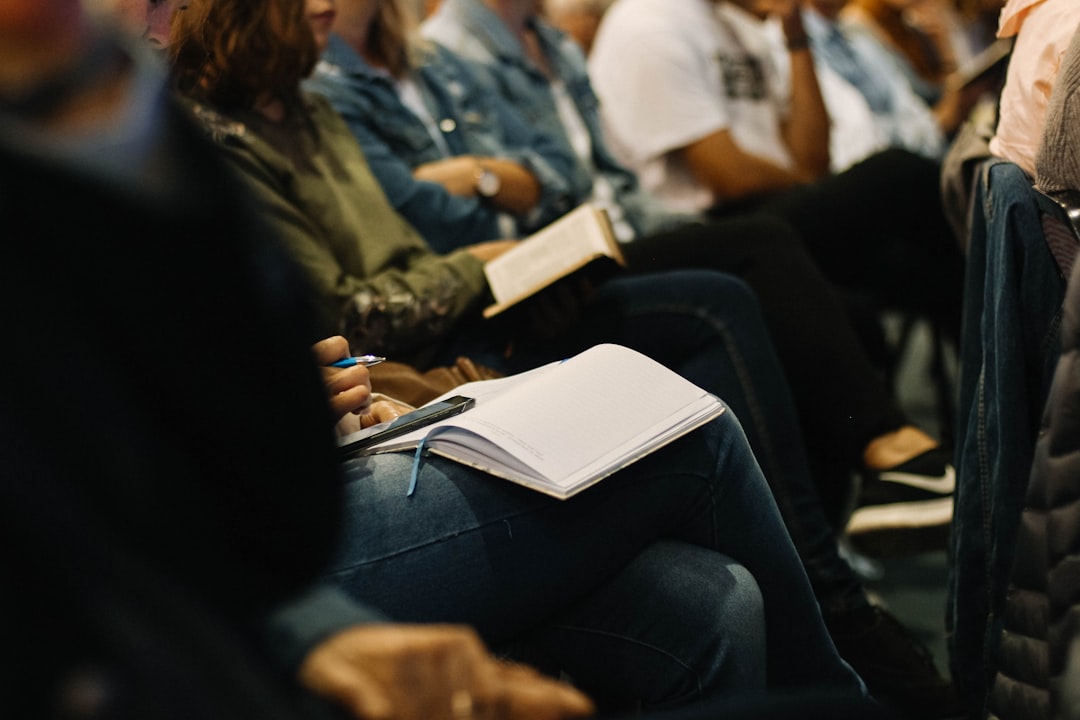


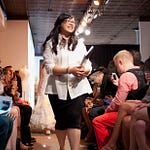
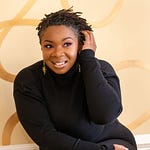

The Podcast S2, Ep2: Finding your path through story, romance, witchery, and Jane Austen